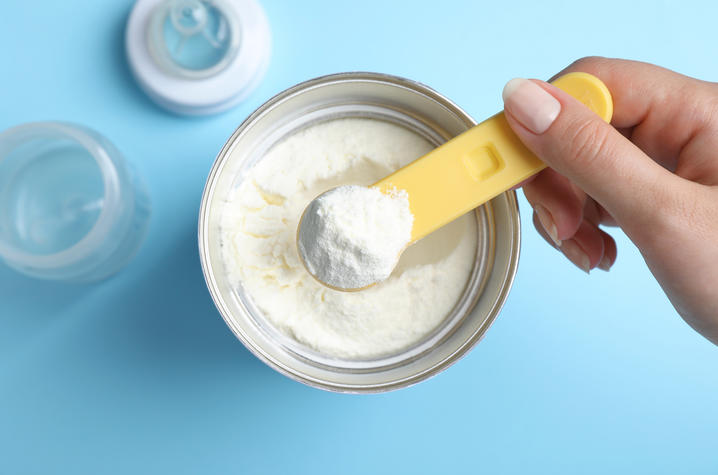What to know about infant formula and botulism

LEXINGTON, KY (Nov. 11, 2025) — Parents want to feed their children the very best, and for those who rely on formula for their infants, the number of choices on store shelves can be overwhelming. But no matter the brand, protein source or nutritional content, parents and caregivers need to be mindful of alerts and recalls related to botulism outbreaks.
Botulism is caused by toxins produced by the spore-forming bacteria called Clostridium botulinum. Food items, such as canned foods and infant formula, become contaminated when they come into contact with the spores and then are improperly stored. While botulism is a relatively rare illness, but it can be very serious and cause long-term nerve damage, which in turn can lead to weakness and paralysis.
Infant botulism occurs in babies younger than 6 months. It develops when C. botulinum spores are eaten by a baby and the bacteria grow in the intestines, making toxins within the gut. Sources of the spores can be environmental, such dust and dirt. They may also be present in food manufacturing facilities, contaminating food and formula as it is packaged for distribution. Honey is also a source of botulism in infants; the American Academy of Pediatrics recommends that parents and caregivers not give honey to children younger than 12 months.
Symptoms of infant botulism may range from mild to severe, and can include:
- Constipation
- A weakened cry
- Loss of facial expression
- A reduced gag reflex
- Slow feeding
- Overall weakness or floppiness
If your infant is showing any of the above symptoms, especially constipation or difficulty feeding, seek emergency care immediately. Nearly all children with botulism require hospitalization. Antibiotics are not an effective treatment for botulism, and there is no preventative vaccine. Infants and children who are seriously ill may require a ventilator to help them breathe and feeding tubes to deliver food and nutrients intravenously. With early treatment and supportive care, most children recover from botulism, although it can take several weeks to months.
For parents and caregivers who rely on formula, pay close attention to news and alerts from the Centers for Disease Control and Prevention regarding recalls of formula due to contamination. Alerts will include the production date and the lot number, both of which can be found on the bottom of the can. If you purchased a formula that has been recalled, refer to the manufacturer’s website for more information. If you have additional questions about formulas, talk to your child’s pediatrician.
UK HealthCare is the hospitals and clinics of the University of Kentucky. But it is so much more. It is more than 10,000 dedicated health care professionals committed to providing advanced subspecialty care for the most critically injured and ill patients from the Commonwealth and beyond. It also is the home of the state’s only National Cancer Institute (NCI)-designated Comprehensive Cancer Center, a Level IV Neonatal Intensive Care Unit that cares for the tiniest and sickest newborns and the region’s only Level 1 trauma center.
As an academic research institution, we are continuously pursuing the next generation of cures, treatments, protocols and policies. Our discoveries have the potential to change what’s medically possible within our lifetimes. Our educators and thought leaders are transforming the health care landscape as our six health professions colleges teach the next generation of doctors, nurses, pharmacists and other health care professionals, spreading the highest standards of care. UK HealthCare is the power of advanced medicine committed to creating a healthier Kentucky, now and for generations to come.




